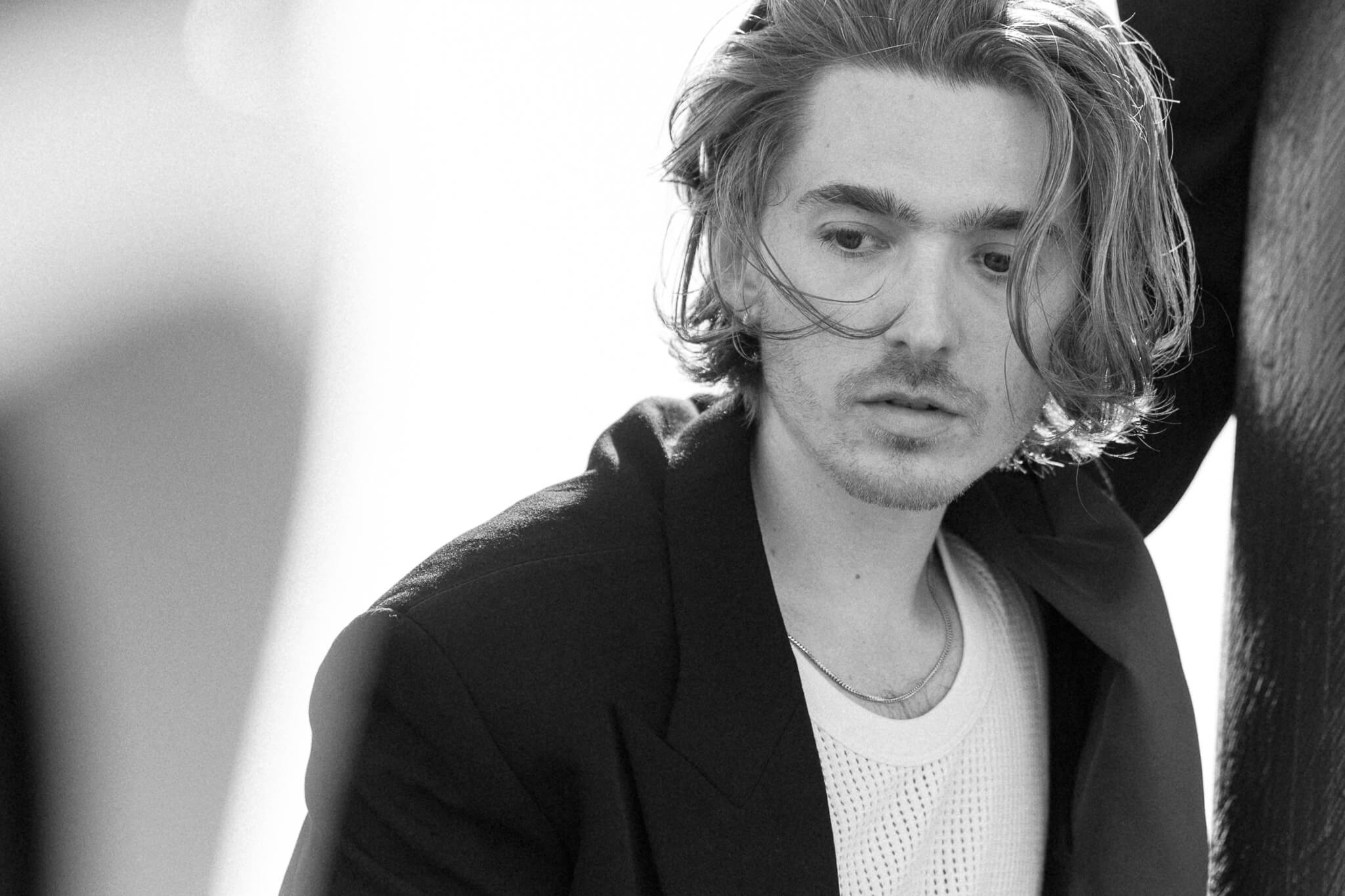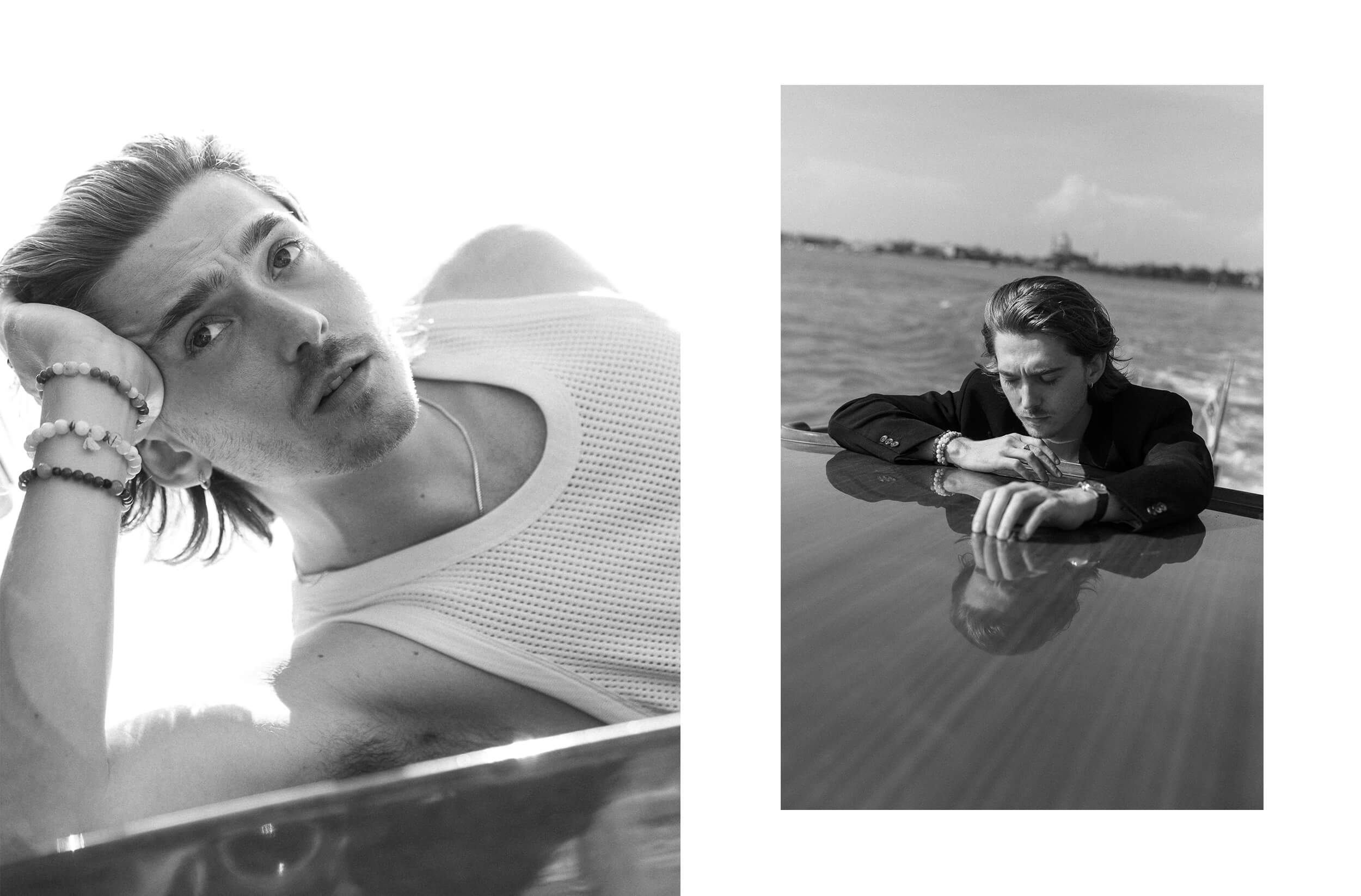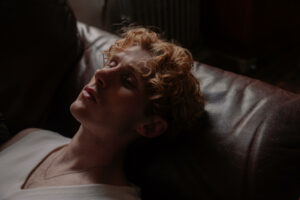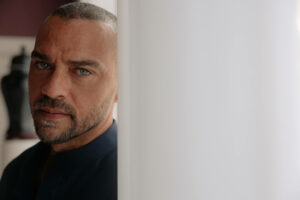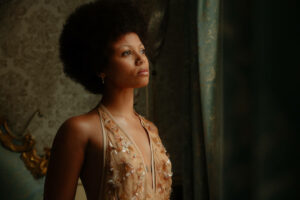“Wolfs” is one of the movies that made me laugh the hardest this year at the Venice Film Festival: a fast-paced, surreal comedy that at times tastes like a drama: it’s a wonderful, perfectly calibrated mixture of both genres, with a wonderful, perfectly calibrated game of exchanges between masters of acting.
We had a great, fun and adventurous encounter with Austin Abrams, “the kid” of the movie, and our September Cover Story. Austin told us about the impactful experience of working alongside cinema veterans: the lessons he learned, the new parts of himself he got in touch with, the physical challenges he had to face, made every day on set the best day on set.
An interview (and a movie) on vulnerability, friendship, and the surprising things you get to discover through the wonderful world of cinema.

What’s your first cinema memory?
You know, I remember I was always into movies when I was a kid: apparently, I would watch them for hours. But I can’t remember what was the first movie I saw. Maybe because I used to watch so many…
In the movie “Wolfs” yours was quite an upbeat and physically “demanding” performance – running around under the snow all the time, most of the scenes half-naked – what did you think when you read the script for the first time? What was the rehearsals or preparation process like?
When I first read the script, I was very excited. I first read sides auditioning for it and the first scene I read was the one in the hotel room; I had no idea what it was about at the time, and in the script, it said, “A giant rat comes into the room”, and in my mind, I thought it was a huge, man-sized rat and the code name for it was “unicorn”, so I said, “What the hell is this movie about?” [laughs]. At first, I only knew George [Clooney] and Brad [Pitt] were in it. Later, when I fully read it, I felt excited about it also because it’s written really well, John [Watts] is a great writer.
The “funny” thing for me was that in the script, the chase sequences were about five pages long, and I didn’t fully understand how long the shoot would be for that, but it was a month of running and stuff like that, and I wasn’t prepared, so that was definitely challenging!

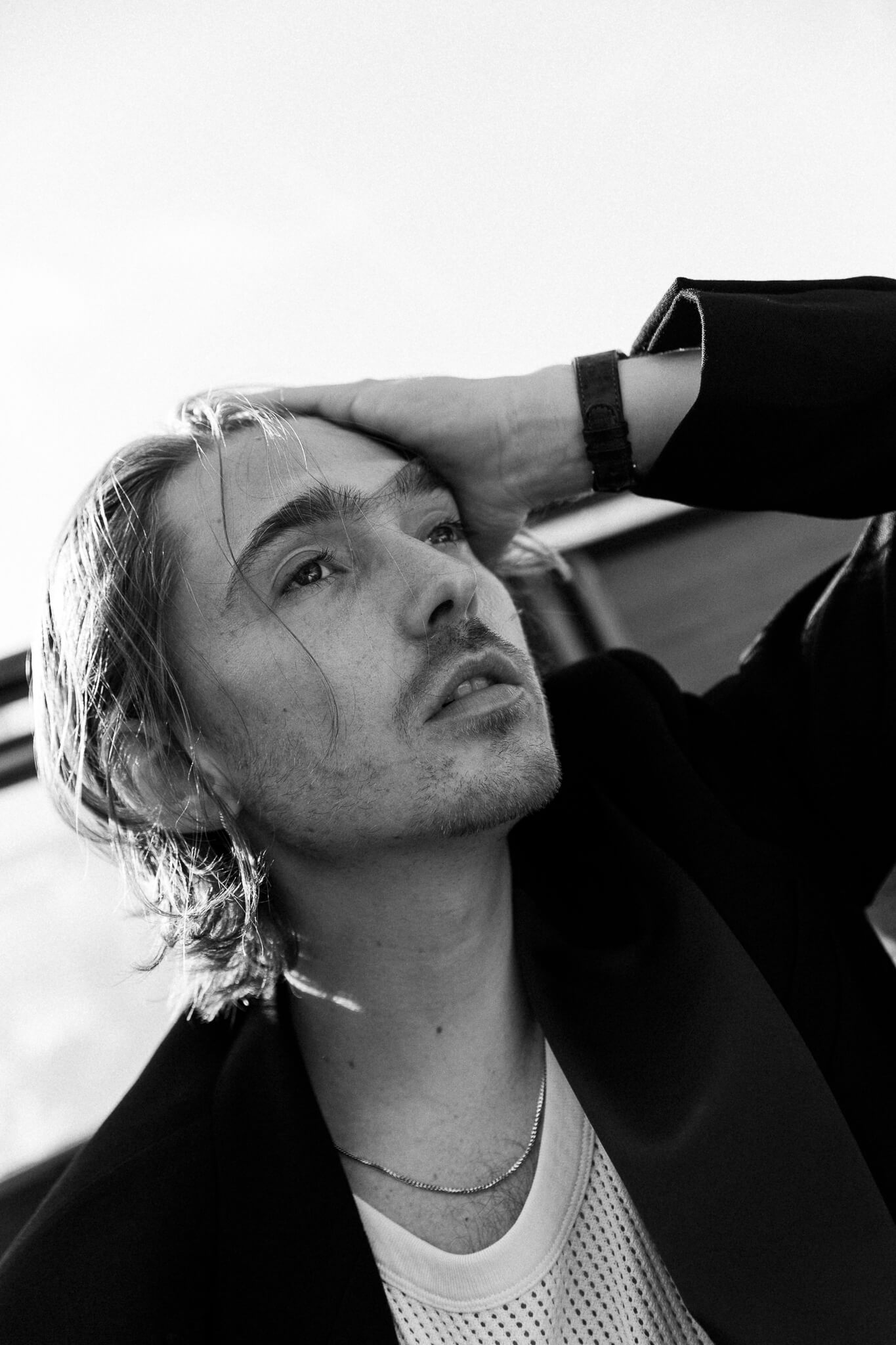
I had so much fun watching the movie. Your comedic times were so perfect and perfectly aligned with George Clooney’s and Brad Pitt’s. How did you three work together to shape such a fast-paced, complex, and hilarious plot?
That’s a good question! George and Brad are so smart when it comes to crafting a scene that, in a sense, I kind of follow them because they’re geniuses and masters of what they do. I feel like my intention was to come in and follow their lead and help craft the scene as best as I could. They’re so skilled that you want to let them craft a lot of it.
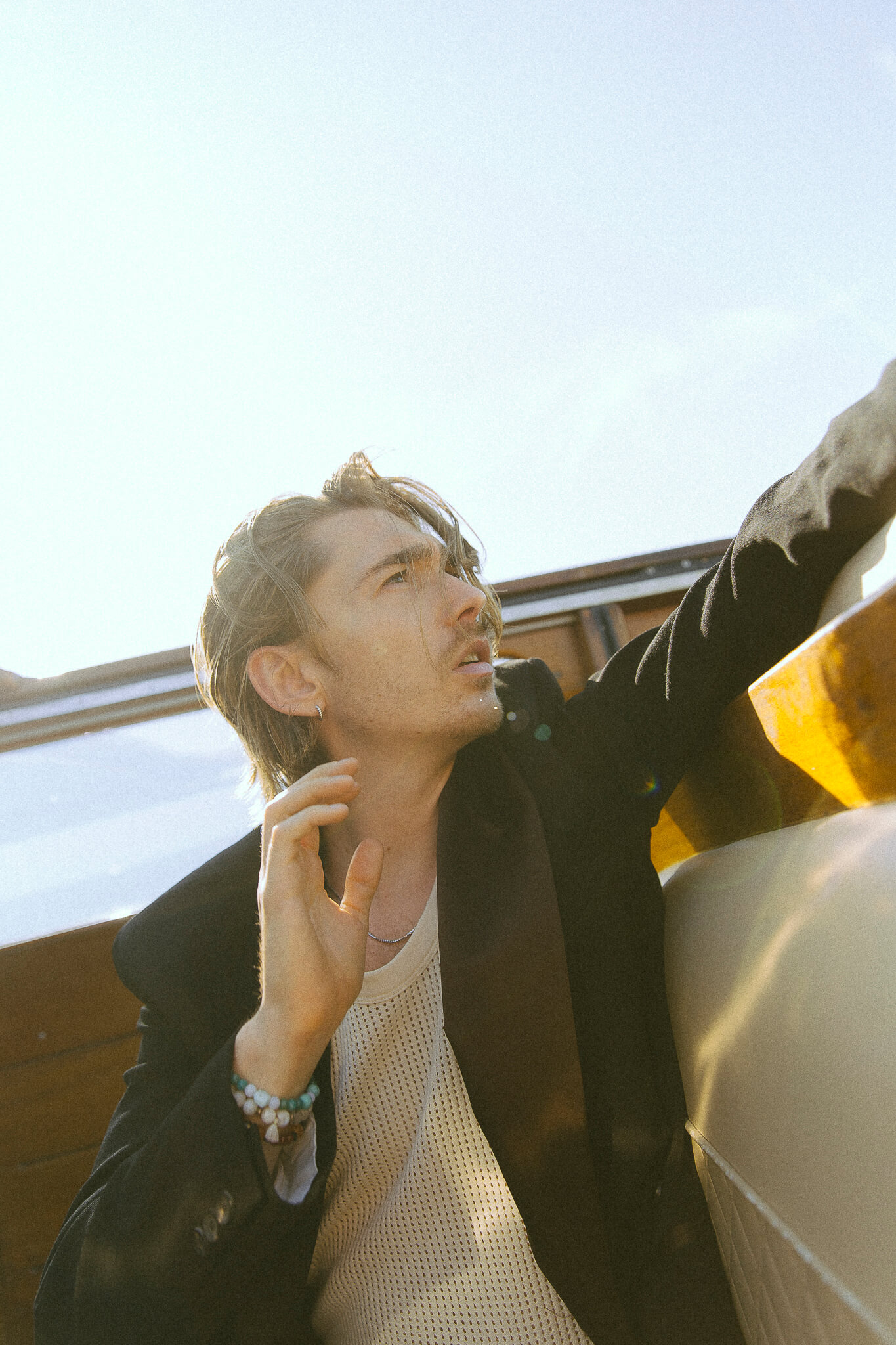
What was the most fun scene to shoot? And the hardest one to perform?
The hardest part, in a sense, was certain aspects of the fight, the running parts sometimes, like filming the flip scene.
The fun part was basically every day, every single day I came in and felt thankful and excited to work. I was grateful to work with these guys, but also just to hang out with them, whose movies I’ve watched and wished to hang out with them when I did. It’s true, you want to hang out with them in real life, too, because they’re really great, welcoming, generous guys and great actors. So, for me, every day going on set was the best day of filming.
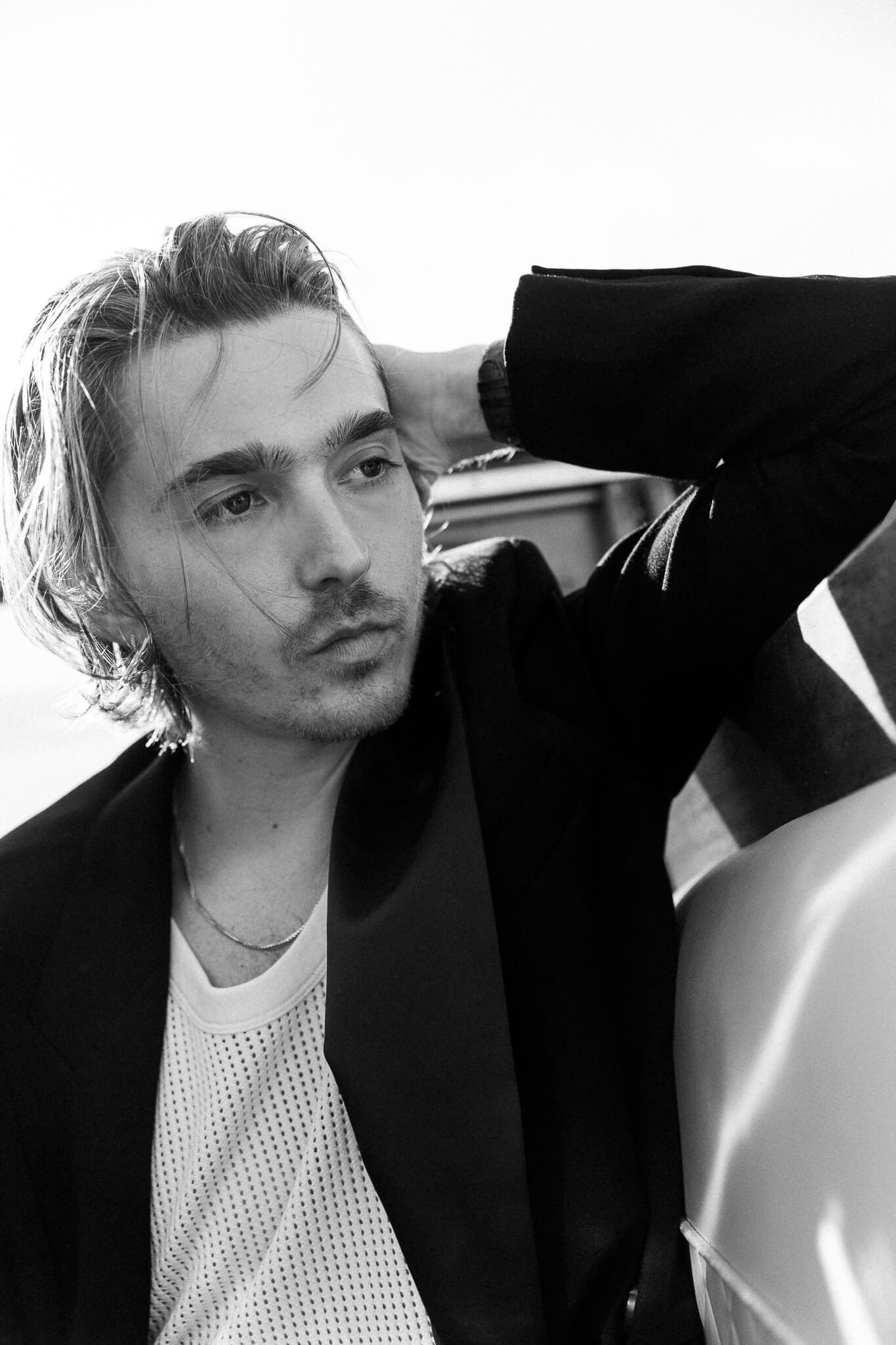
“Every day going on set was the best day of filming”
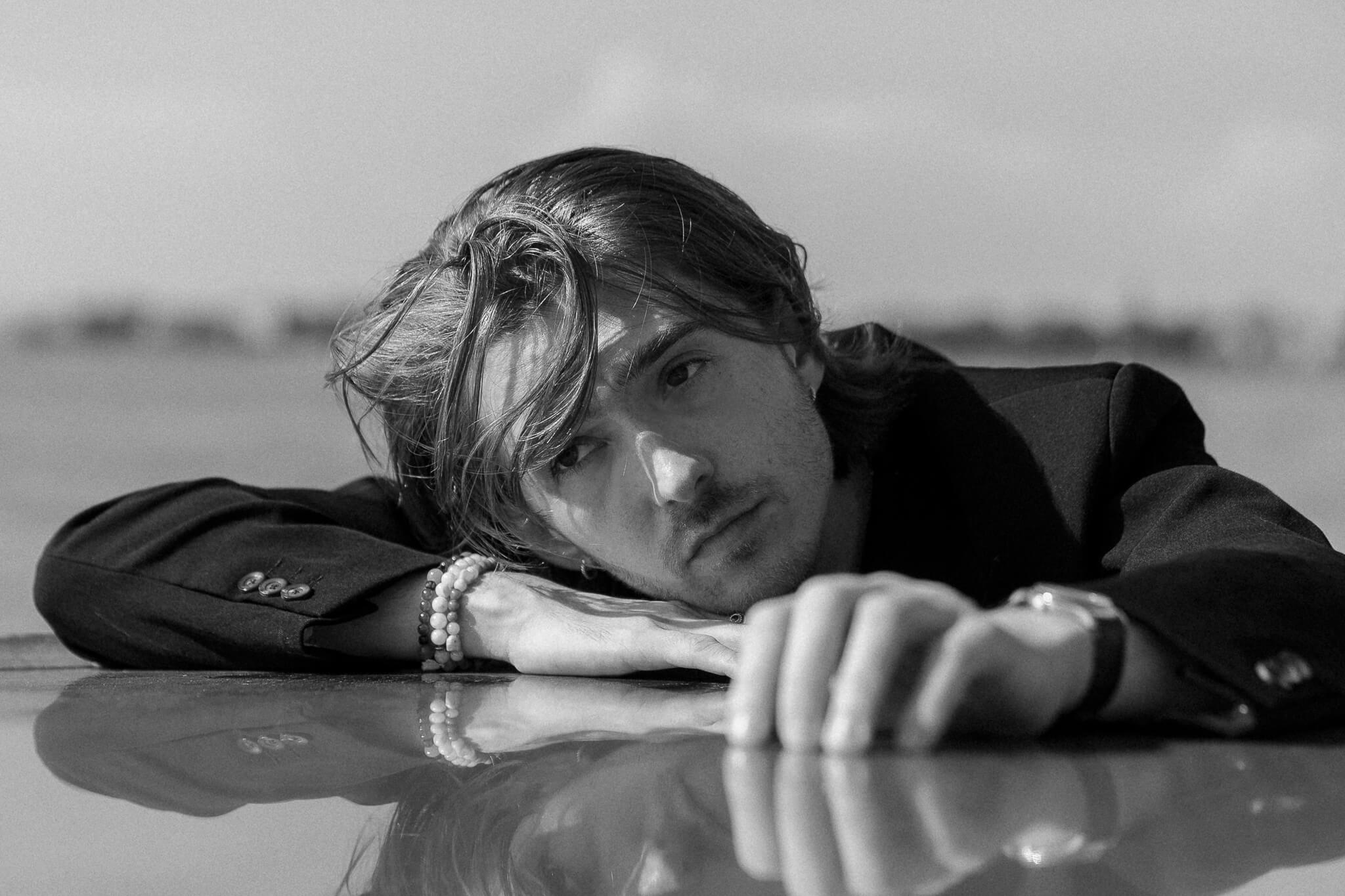
“It can be hard to make new friends as an adult, even if you have a lot in common”, said the director. What’s your take on friendship and the value and power of this relationship when we get older?
Obviously, friendship is very important, as well as the vulnerability that you can have with someone and the love that you can share. Also, your friendships go as deep as the relationship that you can have with yourself: the deepness of the friendships that you’re able to have is a reflection of what you can have with yourself, I guess.
The more connected you can become with yourself, the deeper your friendships can be.
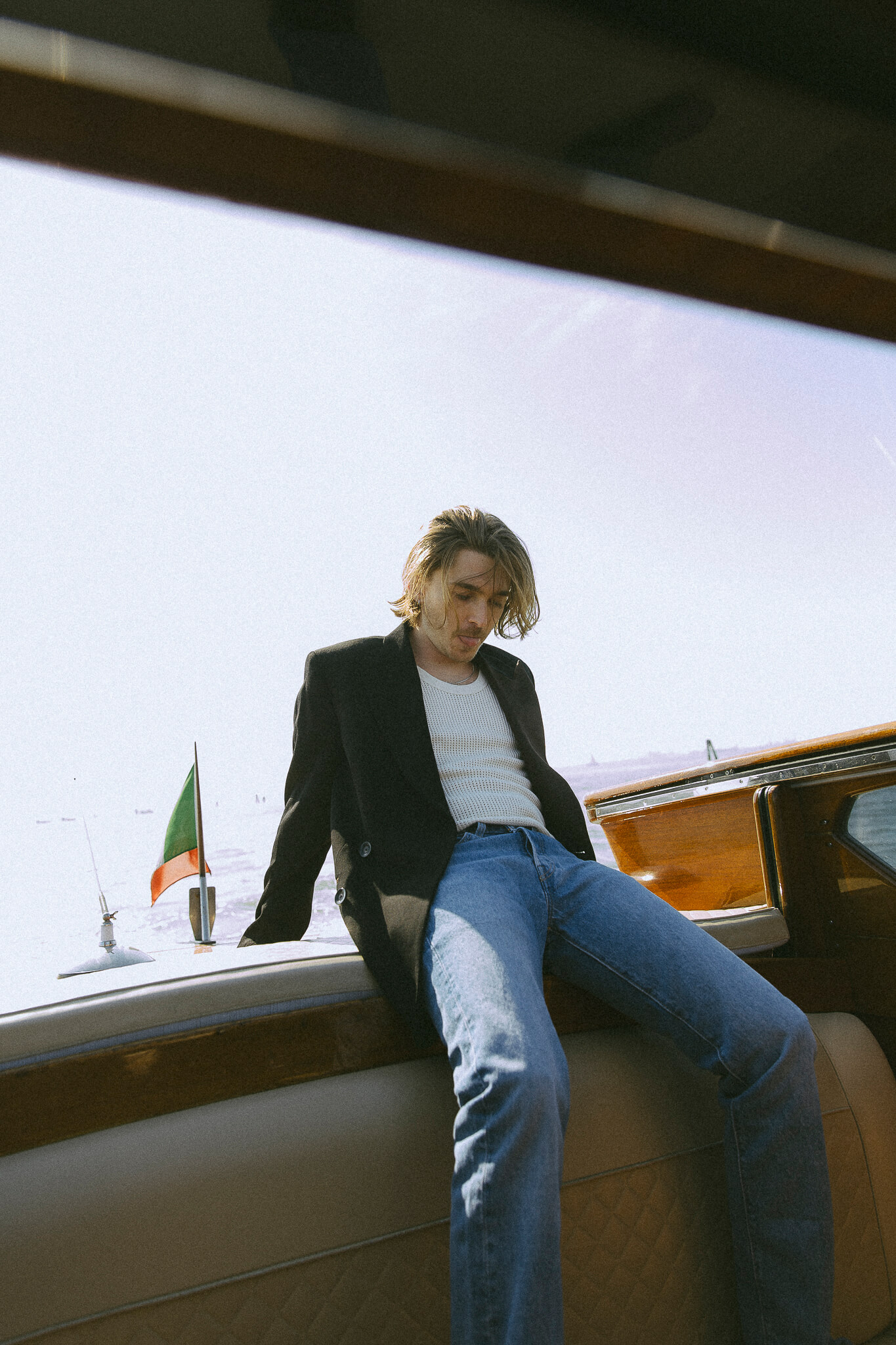
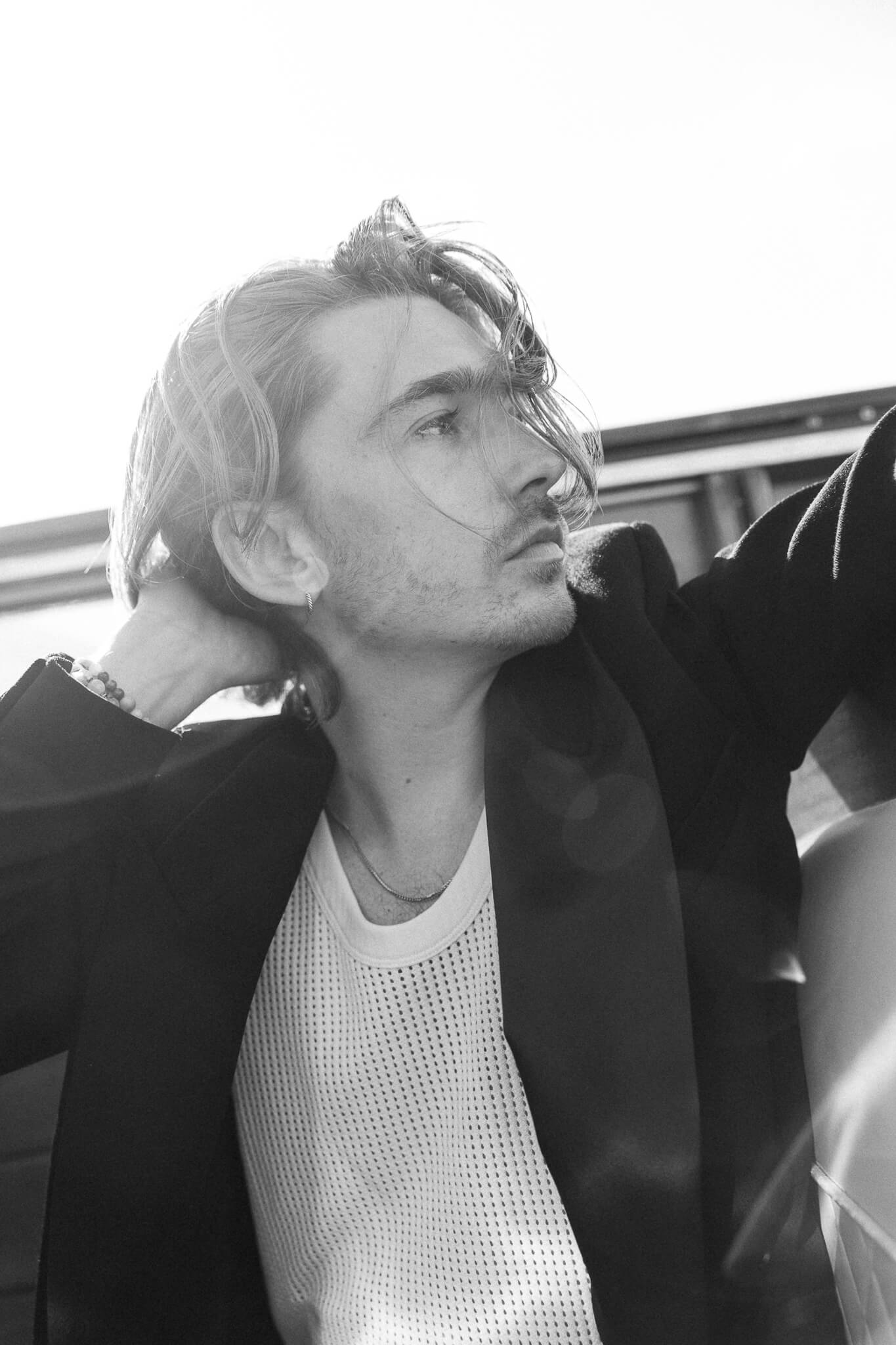
The movie features two lone wolves forced to work together. Do you identify as a lone wolf yourself? Or rather a social animal?
I think everyone’s a social animal! It depends, life is a balance and we all fluctuate, so there are times when you want to spend time alone and times when you want to see people more. It’s not black or white.
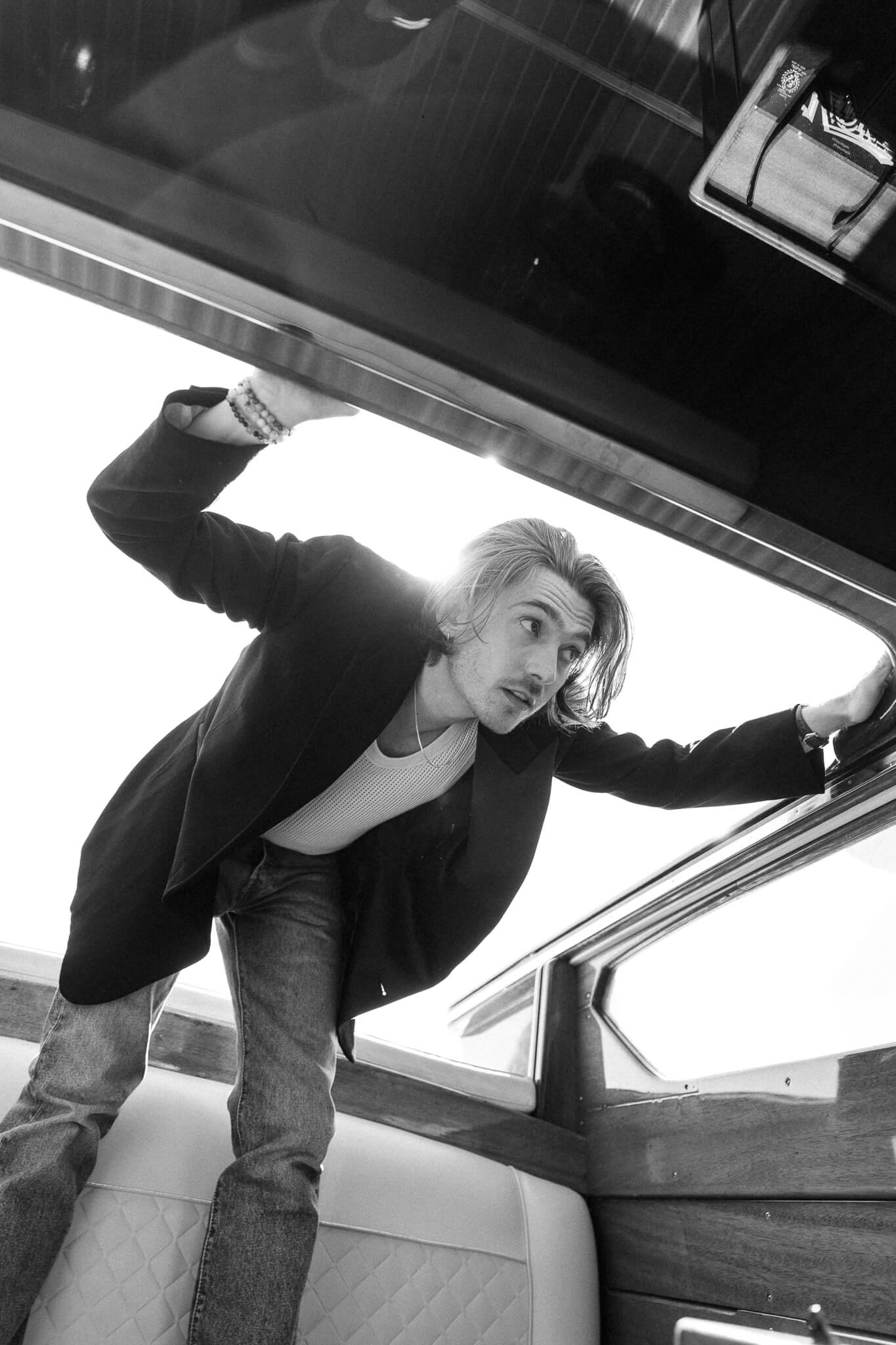
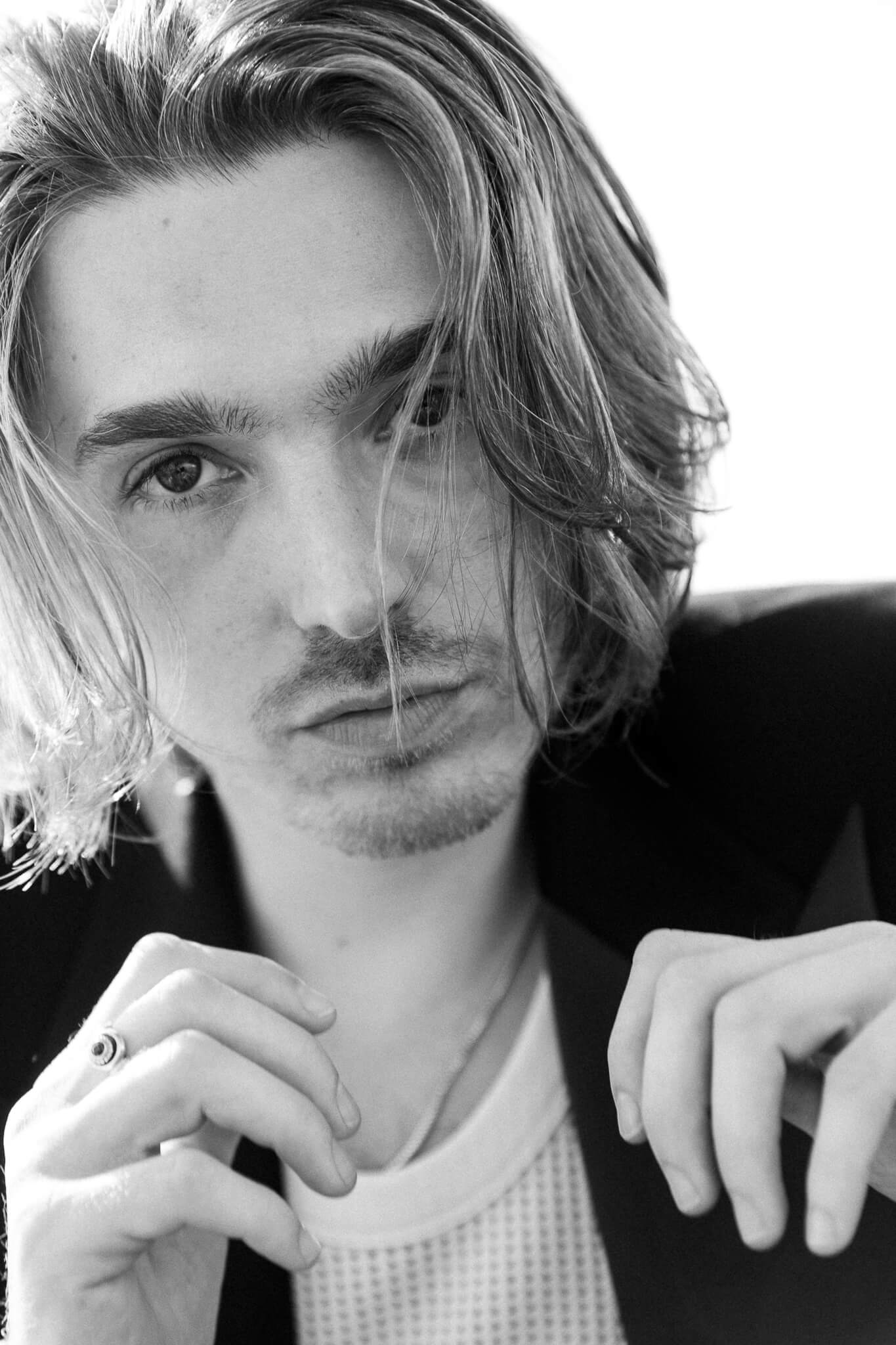

The irony is evidently the protagonist in this movie. What role does it play in your life?
I feel like it’s important not to take things too seriously and to have a lightness because you can get caught up in being serious sometimes. I think it’s important to remember that everything is noise, especially in what we, actors, do because we can feel the pressure to behave in a certain way or be seen in a certain way, and remember what’s important, like being goofy sometimes and be yourself and not whom you think other people want you to be.
You don’t want to take yourself too seriously because that sucks.
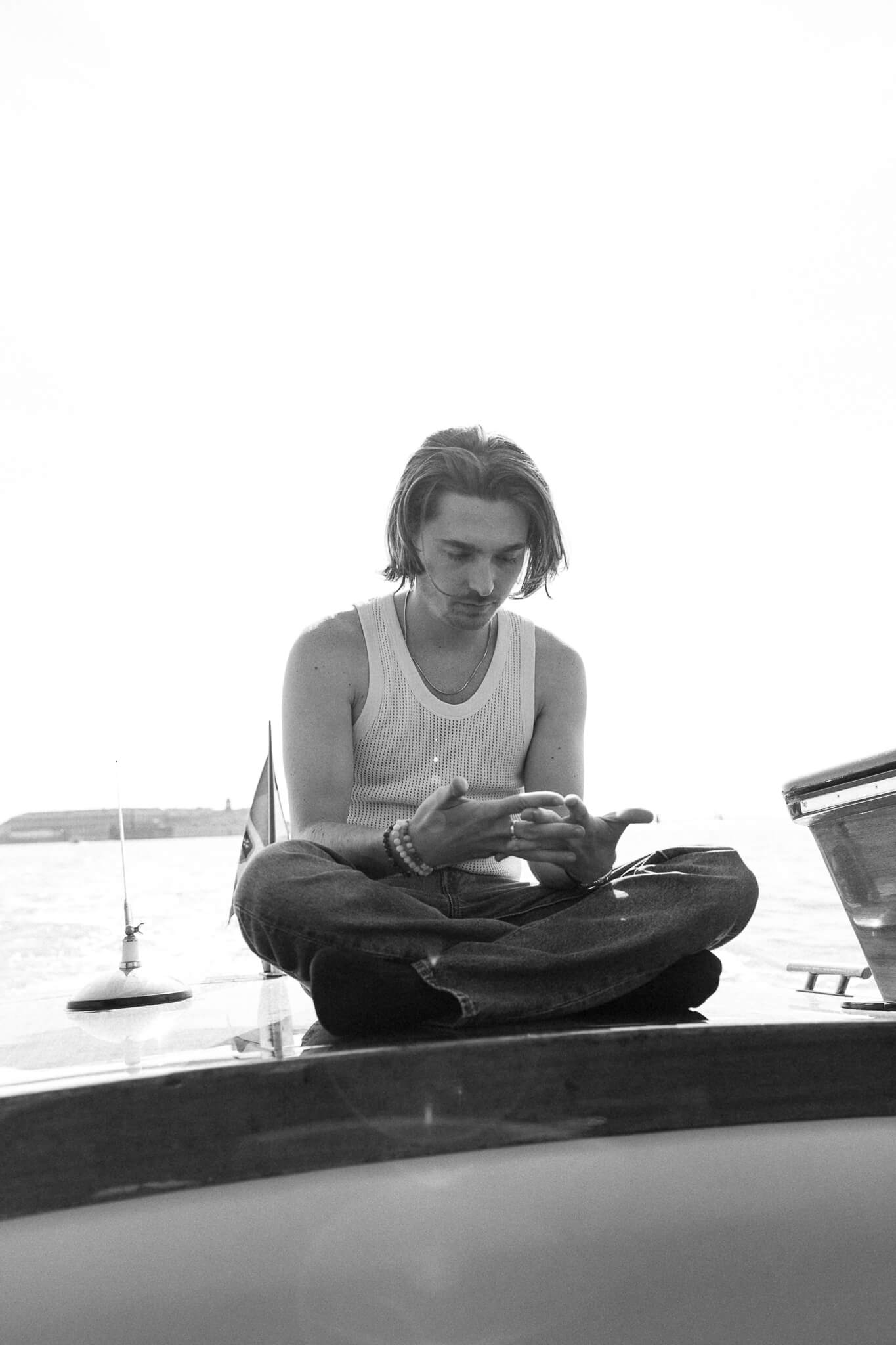
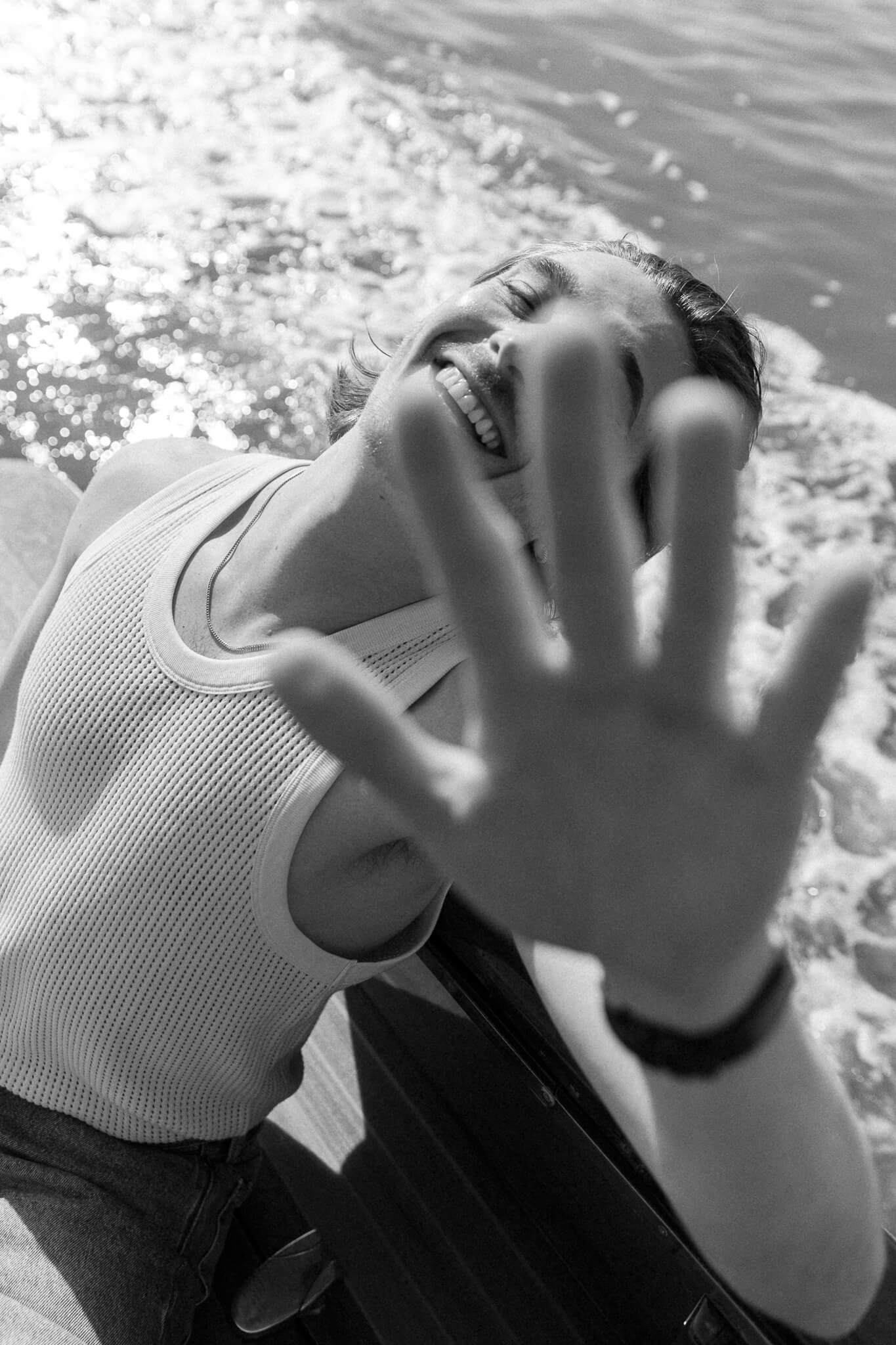
“I think it’s important to remember that everything is noise”
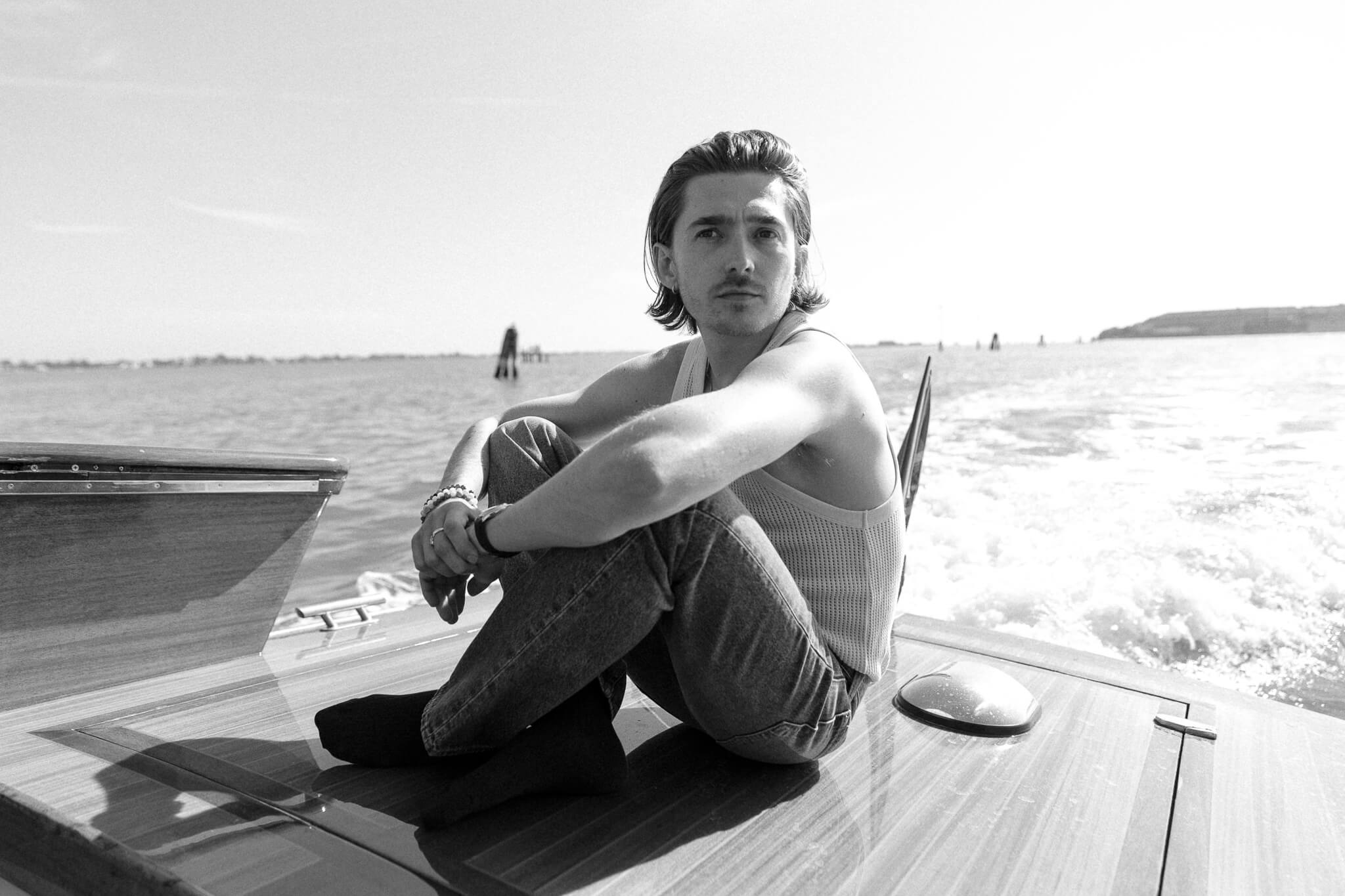
“Wolfs” is a wonderful comedy, but you’ve also worked on dramas like “Euphoria”. What’s your favorite movie genre to work on and your favorite one to watch?
My favorite genre to watch depends on the mood. I feel like I love a lot of different movies.
As for my favorite genre to work on, I think I’ve never looked at the things I’ve done like explicitly comedy or drama – “Wolfs”, for example, is a mixture of both. So, I feel like it’s best to approach whatever you do with the truth of what’s happening at the moment, and not play something for laughs. I remember hearing some stories about Paul Newman in “Butch Cassidy and the Sundance Kid”: they were rehearsing and everything was going well, and then they started shooting and I guess Paul was trying to be funny, but it wasn’t working; so, he talked about it with the director and they found that the comedy really came out when they played the truth.
Usually, the more seriously you take it, the funnier it is. You should just let it be funny or not funny, I guess.
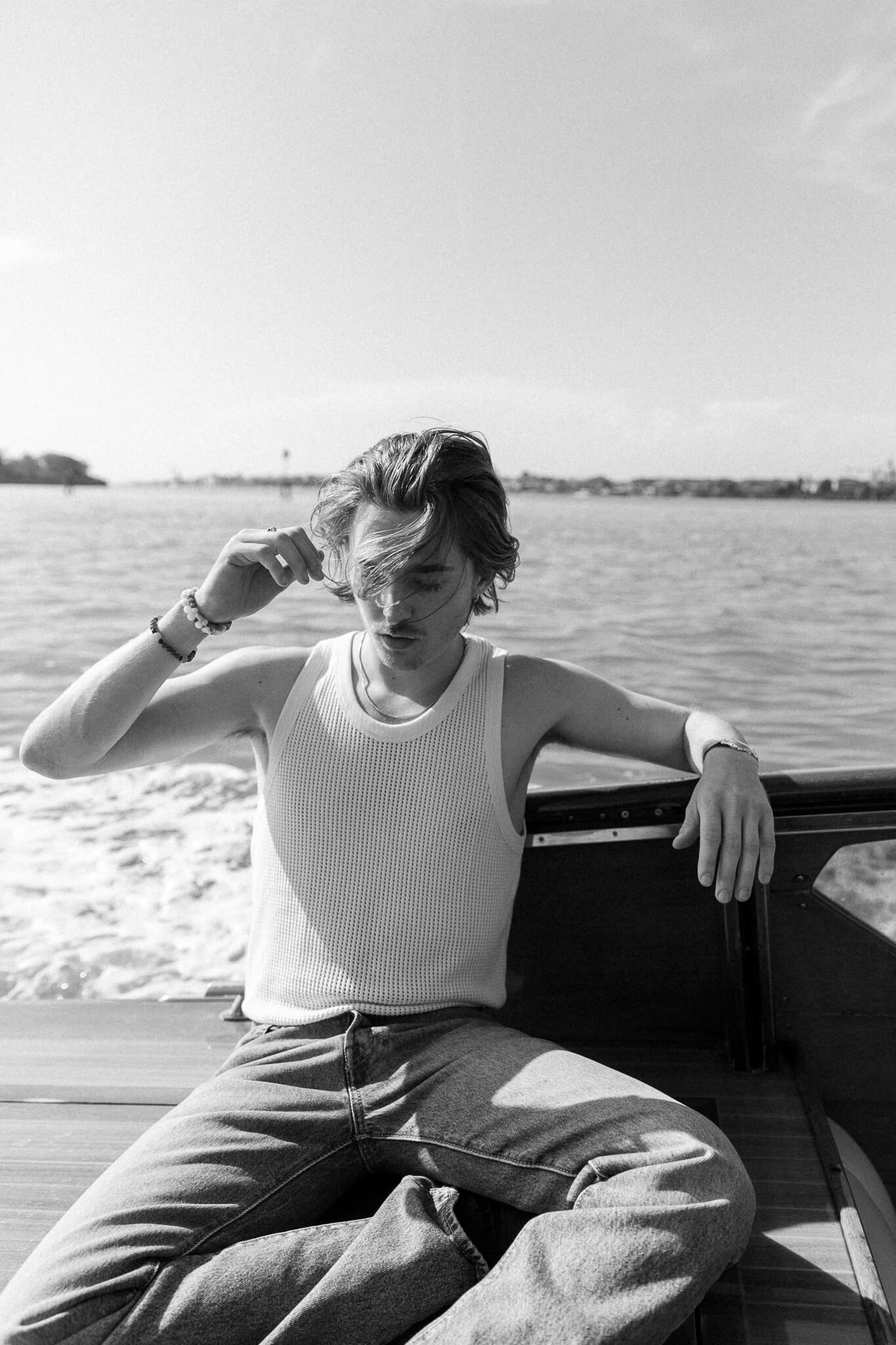
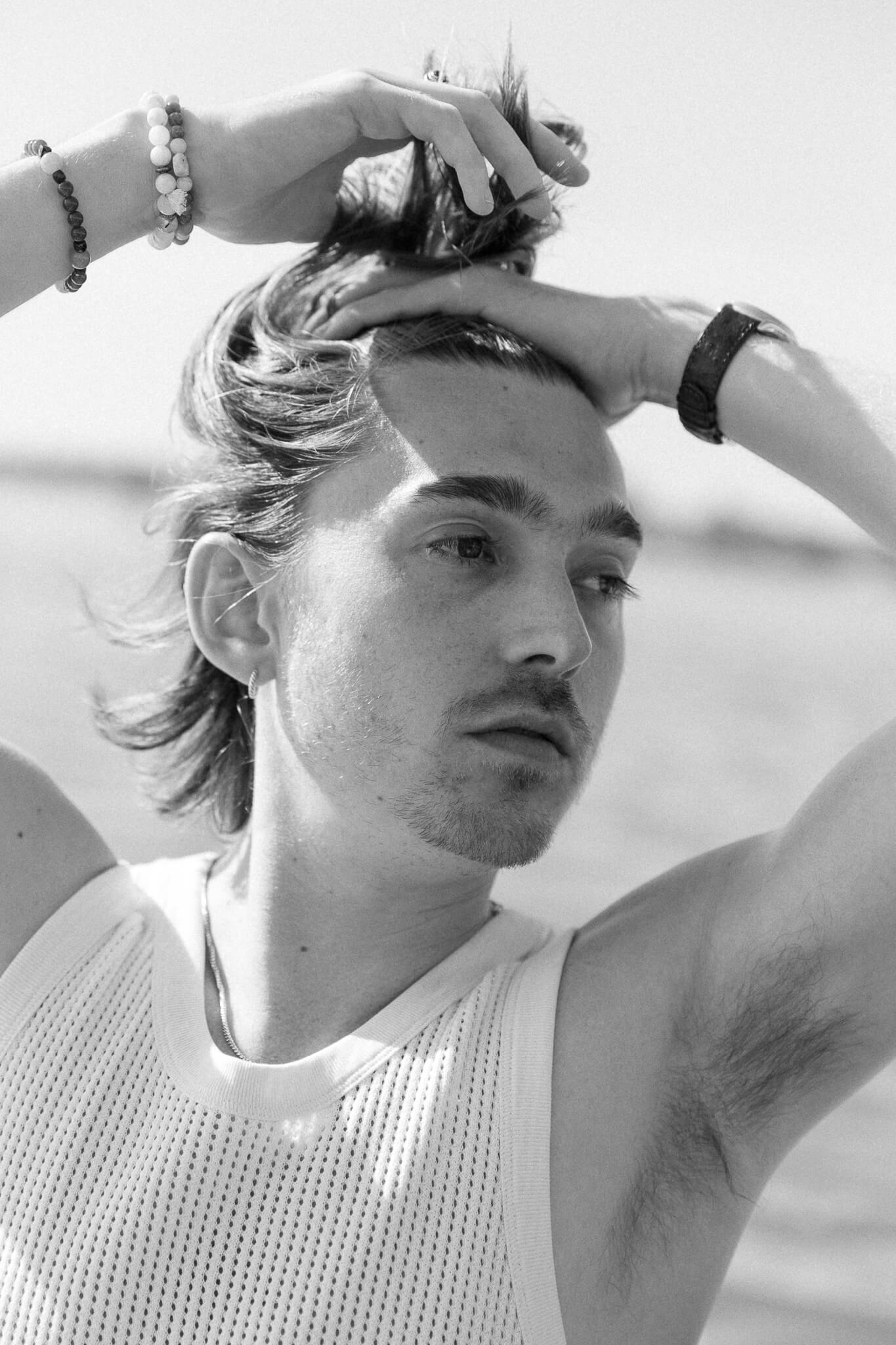
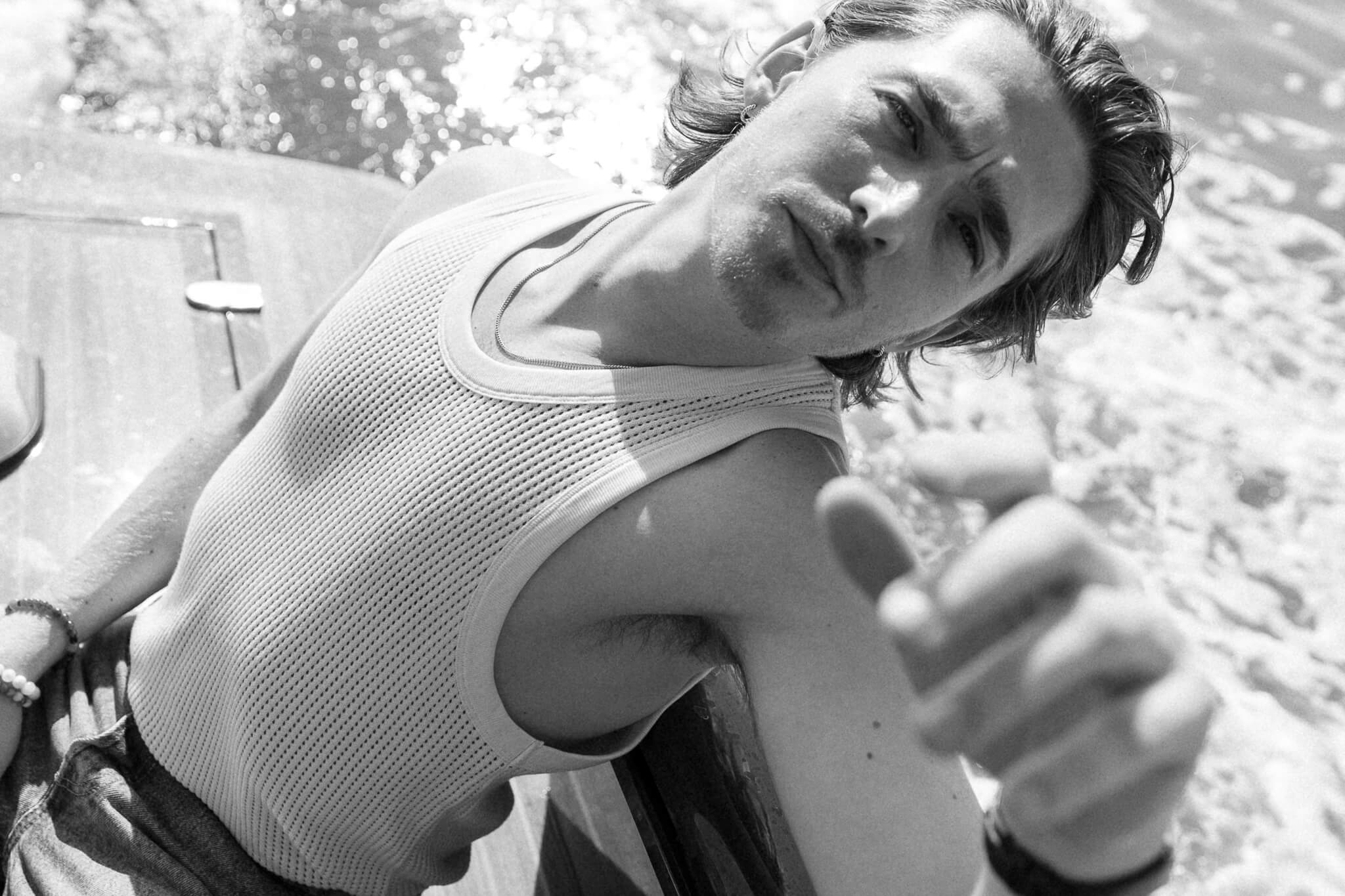
Generally speaking, what makes you say yes to a new project?
A lot of times it’s the people involved, and if you feel excited about it.
It’s a combination of things, but most of the time it’s the people and the writing: sometimes you’re reading the script and you want to stop and take a break, and sometimes you’re reading something and want to read it all the way through. For example, I finished a movie called “Weapons” by Zach Cregger a month ago: I started reading that script at 1 a.m. and was up until 3 a.m. finishing it because I couldn’t stop reading it. That’s usually a good indicator.
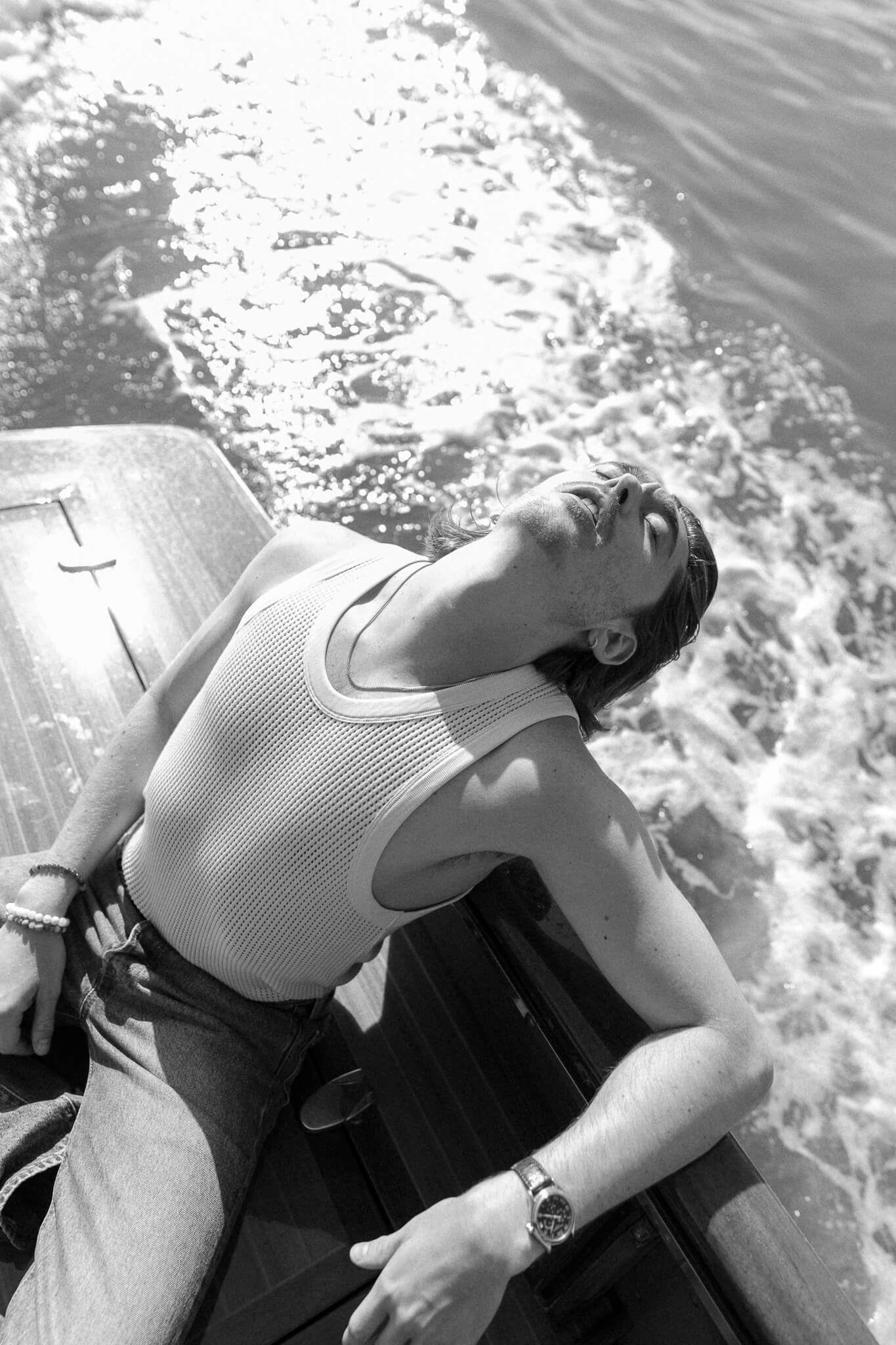
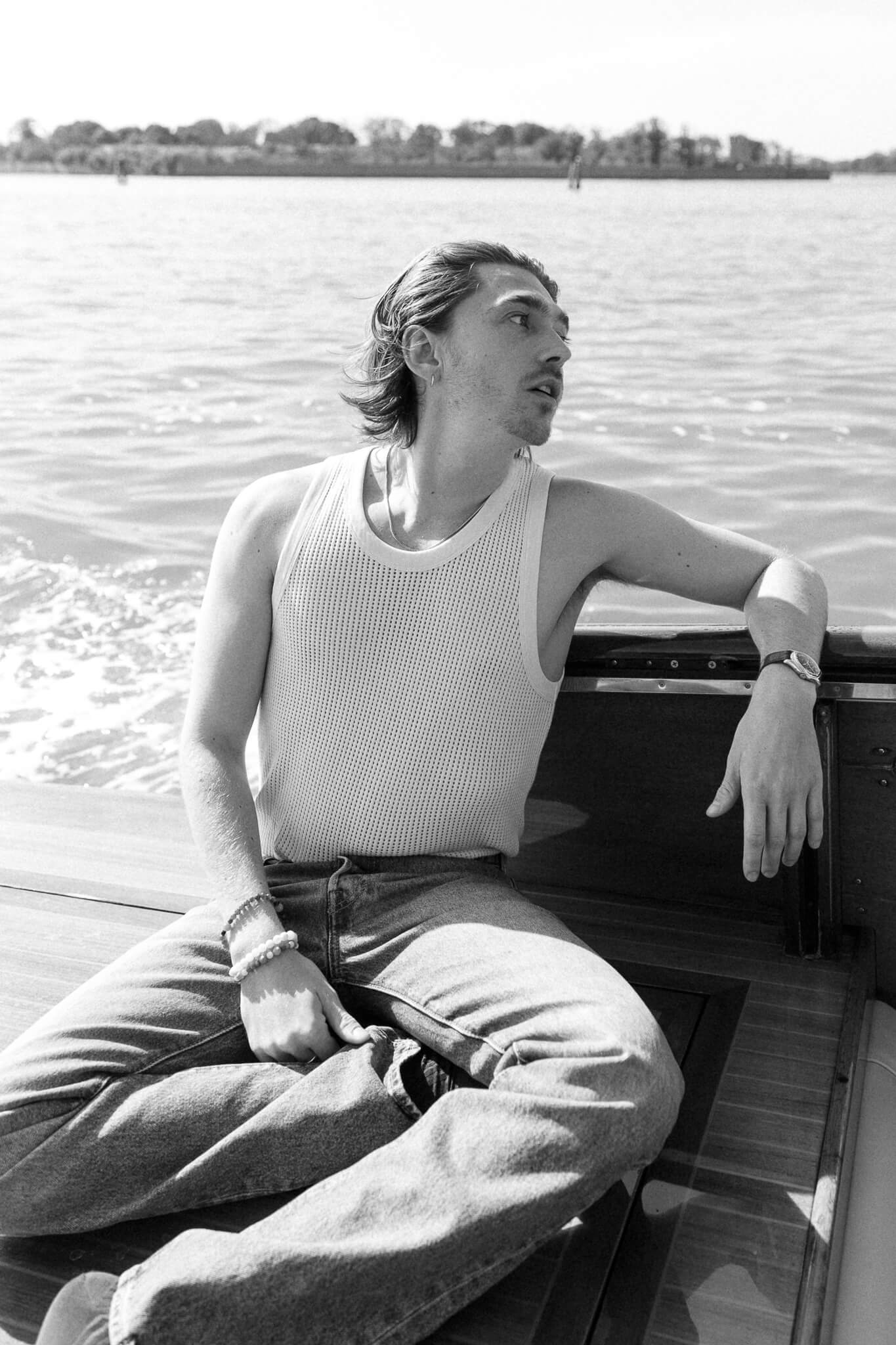
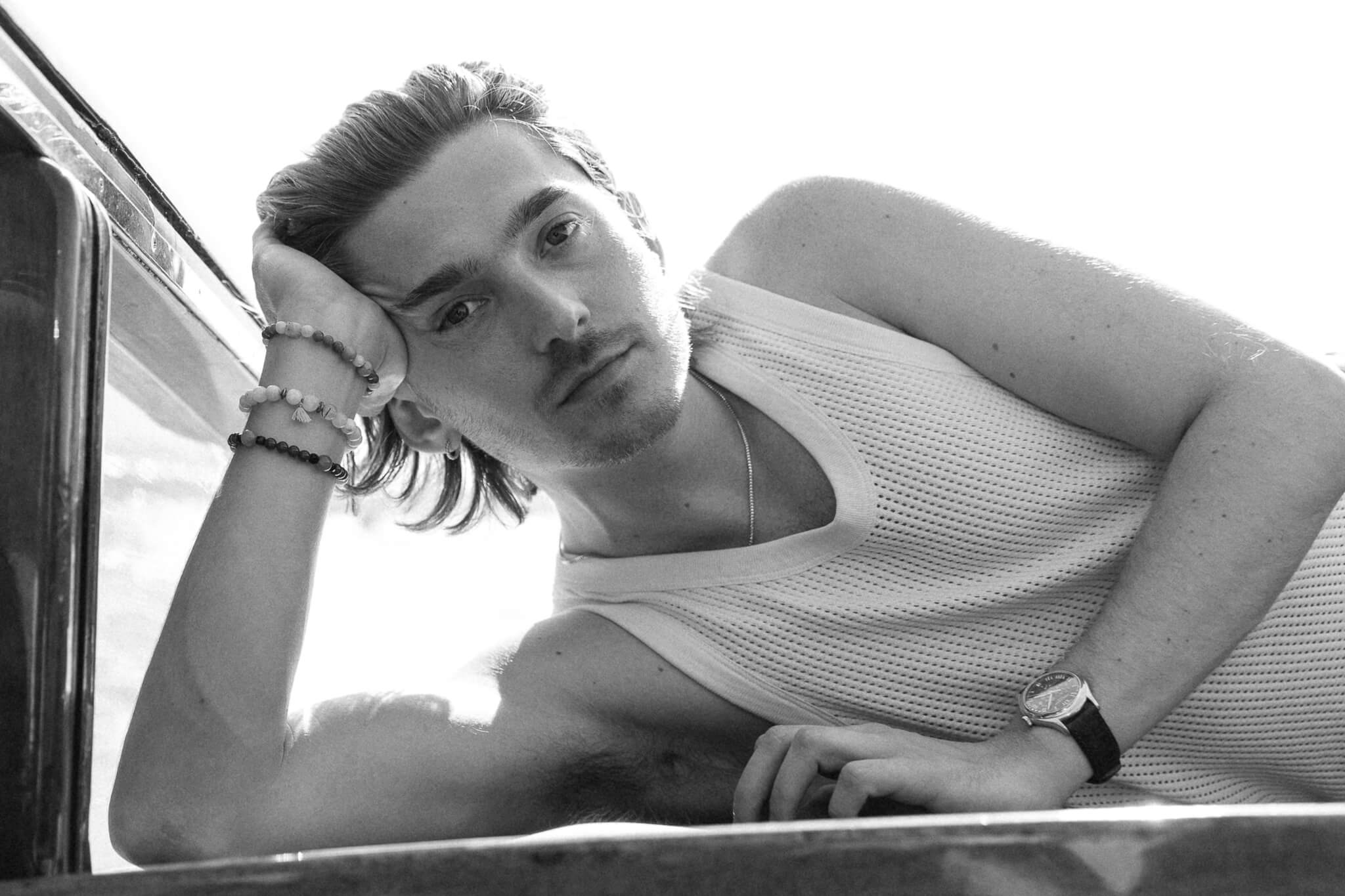
Do you usually tend to be more instinctive or rational when preparing and playing a new character?
I’m not really rational, I feel like you have to listen to your body and what it needs because if you try to do it too rationally, maybe you’re not fully listening to yourself, but rather think you need to do it a certain way. However, lots of times it’s not always the case and for me, it can cut you off from creativity if you try to think about it too single-mindedly.
I found that the more instinctual world of approaching whatever it is you do is more helpful and more fun.
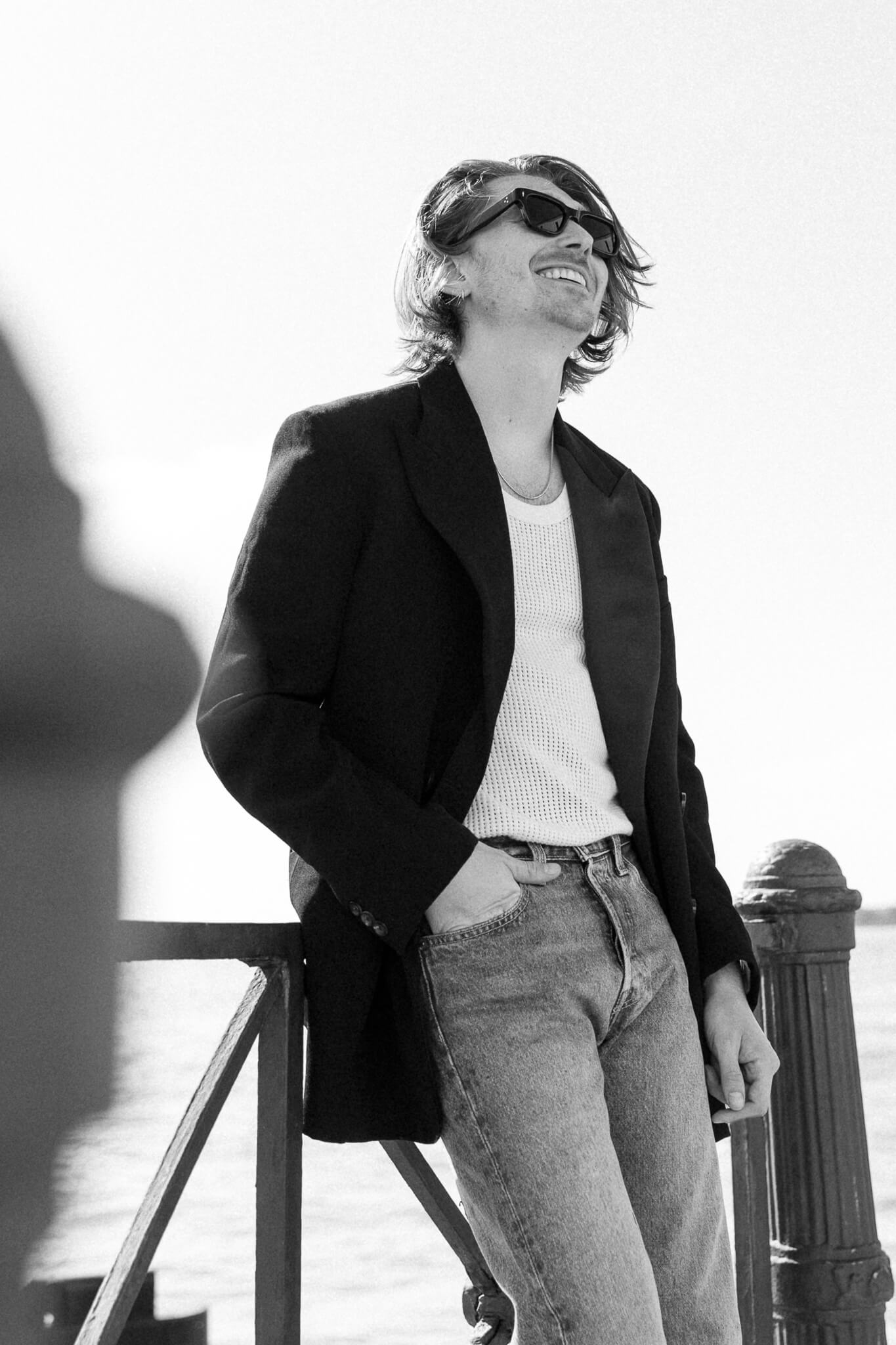
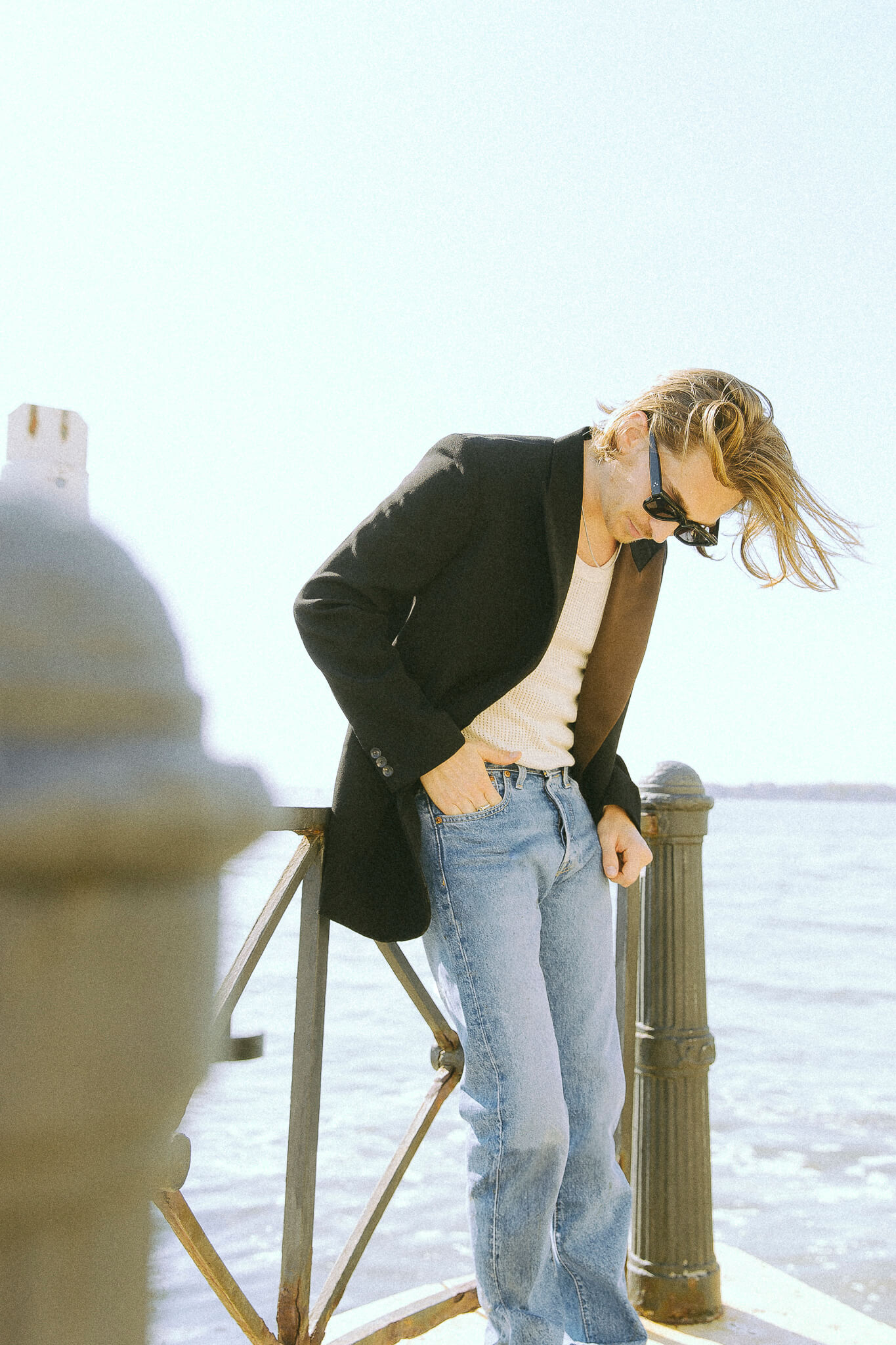
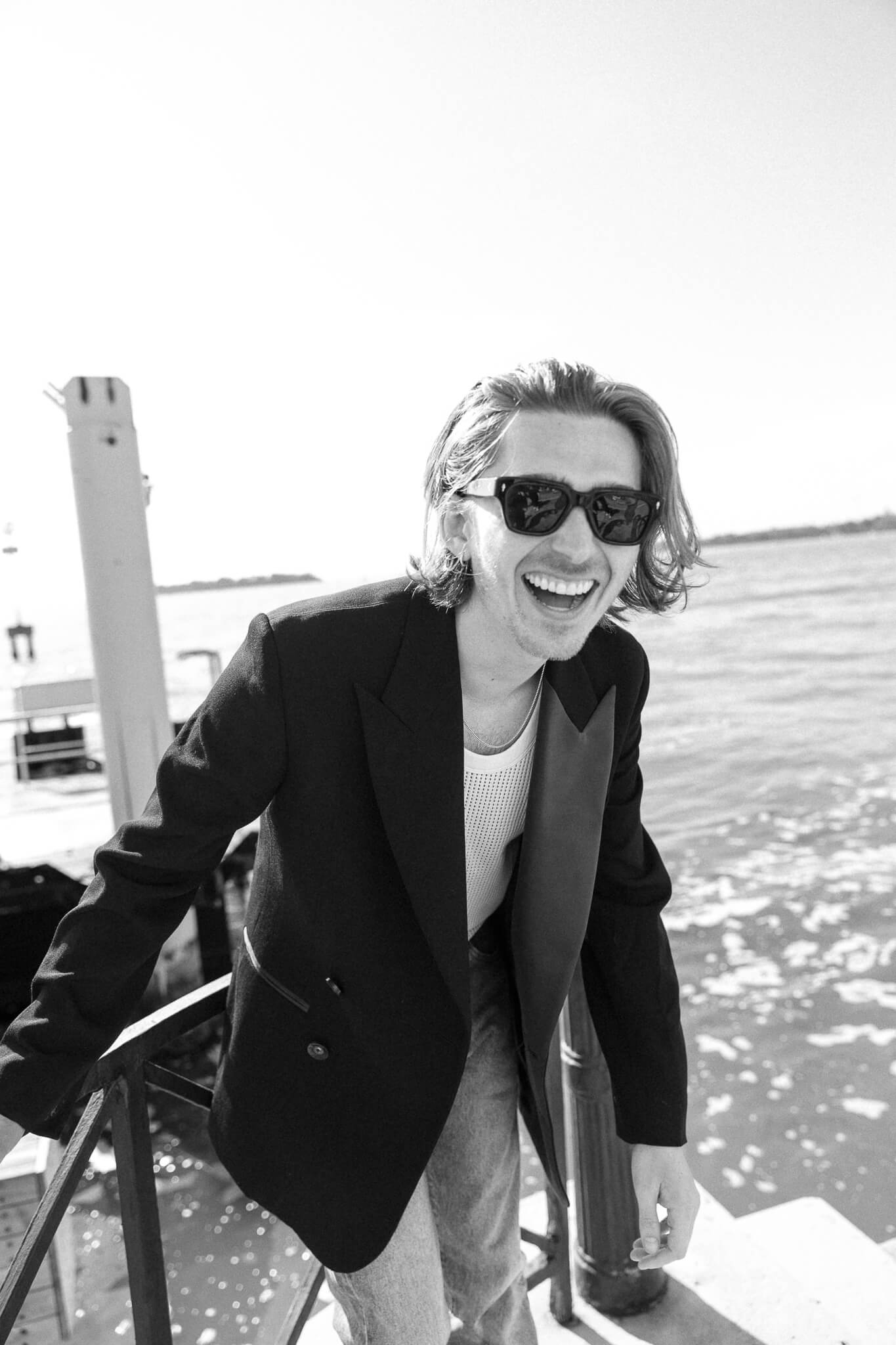
“I feel like you have to listen to your body and what it needs”
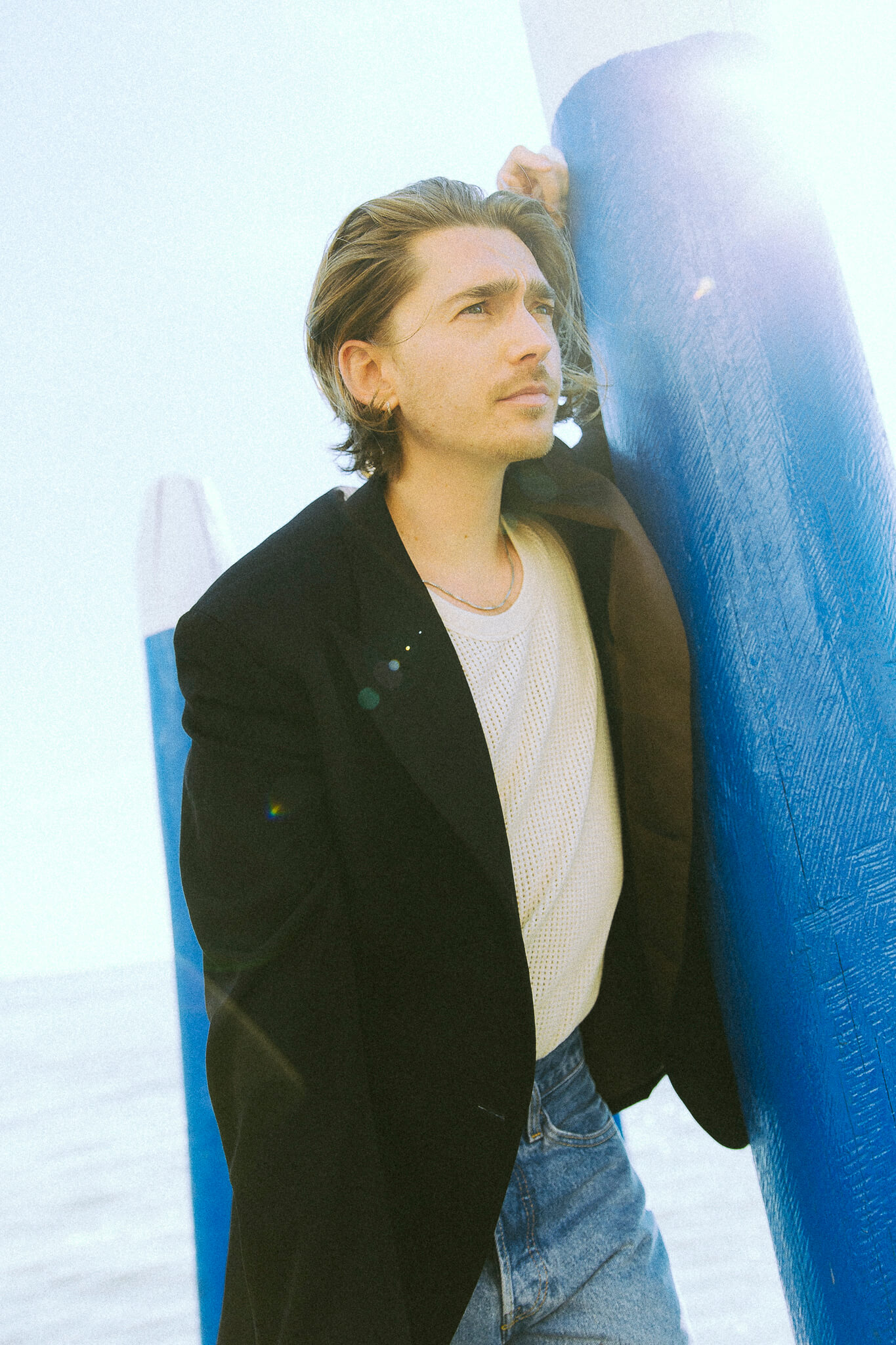
Playing different characters from time to time, you end up spending a lot of time with yourself, exploring your many sides, testing and getting to know yourself more and more. What’s the latest thing you’ve learned about yourself through your job?
For “Wolfs”, there’s a certain amount of childhood I had to focus on. My character is like a puppy dog, he’s called “the kid”, so a lot of my work was to try and get more in touch with that part of myself.
I discovered that sometimes you can expand yourself just by trying to get more in touch with the child parts of yourself, and a lot of times is always surprising, you don’t know what you’re going to find or how you’re going to feel after you’re done working on something, or what you’re going to discover about yourself or a different aspect of humanity. That’s one of the greatest things about this job, the fact that you are able to do that. What I’m really thankful for in this job is that you get to try a lot of different stimuli and focus on new things that you’ve never done before really intensely in a way that other people wouldn’t maybe be able to do because they have their own job to do, whereas my job is precisely to focus on new things, whatever they are. I’m very grateful for this.
What does it mean to you to feel comfortable in your skin?
Feeling comfortable in my skin to me means to just feel present, and to feel safe in your body. As simple as that.
